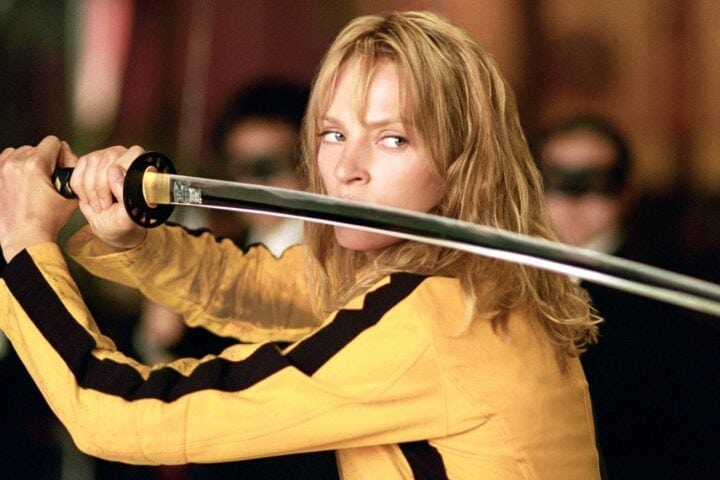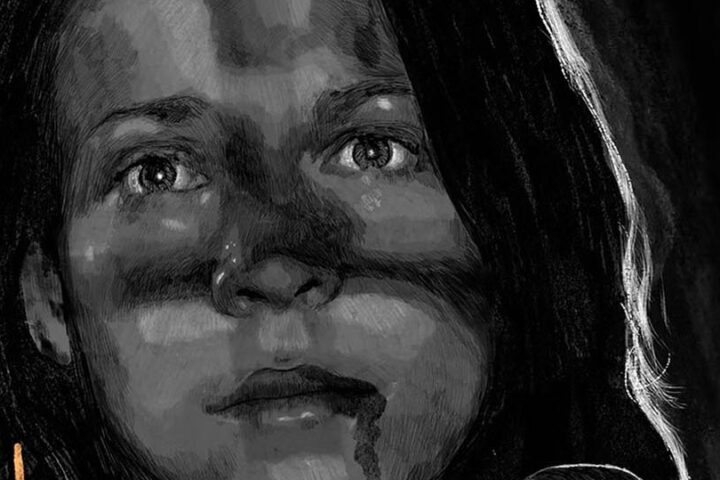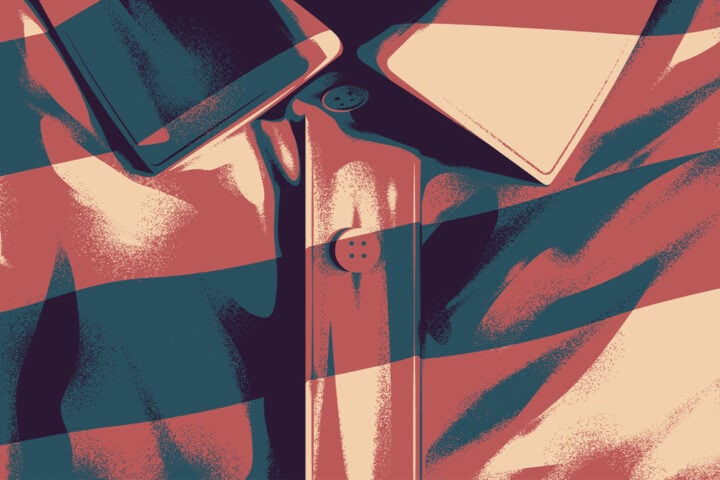Paul Schrader’s Oh, Canada has one of the warmest scenes in the filmmaker’s storied career—one that his acolytes may find startling. A dying man, Leonard Fife (Richard Gere), is sitting at a stool in a diner that’s bathed in sunlight at magic hour, while people from his past push through the front door to join him. It’s a traditional moment of forgiveness, which is why it’s so shocking to see in a film by a man who brokered his legend on stories of alienation. But there’s a catch even here: Schrader doesn’t hold the moment for long, maybe a few seconds, and so it hits you nearly subliminally among other images and other episodes of Leonard’s life, incidents that are understood to be possibly imagined.
Which is to say that the warmth of Oh, Canada renders it even trickier than many of Schrader’s more “on brand” stories of vigilantes who write and speak in the clipped tones of the characters from the transcendentalist films that he treasures. What, really, is at stake in Master Gardener beyond offering a statement of style for Schrader-heads? The director shirked away from that film’s most fascinating implication: the suggestion that the hero had embraced an aesthetic religion—gardening—to hold his monstrousness at bay. By contrast, Oh, Canada doesn’t have genre mechanics to hide behind. The self-loathing is front and center, and Schrader looks it straight in the eye. The warmth here is a reckoning, an admission of longing.
Oh, Canada is aimed at his audience too, as it will be impossible for anyone familiar with Schrader’s life not to take the film as a form of autobiography. The filmmaker was friends with novelist Russell Banks, whose work Schrader adapted with Affliction and, now, Oh, Canada, which is based on 2021’s Foregone. A free-associational portrait of Leonard’s life as he slips in and out of consciousness while a film crew interviews him about his career as a political documentarian, Foregone reads like Banks, who passed away last year, grappling with his feelings of death and erasure, and of having squandered connections to serve his ambitions.
The title of the novel says it all. So much, in fact, that it’s astonishing that Schrader didn’t use it. Add to this stew of subtext Schrader’s life as an aging filmmaker with an ailing wife and regrets over his treatment of his brother, also named Leonard, and the result is a project that’s spring-loaded with tensions both explicit and implicit. Leonard is an avatar for haunted artists, one of whom has already joined him in the hereafter. There’s a sense here of Schrader wanting to pare back his customary aesthetic even further than it’s already been parred over the last several films and speak plainly, with as little scrim between the audience and himself as possible.
Leonard is a celebrated left-wing documentarian, dying of an unspecified form of cancer, who considers himself a fraud. The director of the documentary in which Leonard is appearing, Malcolm (Michael Imperioli), is a former student of Leonard’s, a protégé looking to attain master status for himself. Malcolm is established as a parasite looking to strip-mine Leonard’s drug-induced reveries for an exclusive on a legend. Banks didn’t have much interest in Malcolm, and Schrader has even less so, leaving a thankless role for Imperioli. For Banks, Malcolm reflects Leonard’s suspicion of his own career of turning lives into acclaimed projects. And for Schrader, this setup justifies one of the boldest formal conceits of his career.
Malcolm has erected in Leonard’s sprawling series of apartments a stage that allows Leonard to sit in front of a backdrop, facing a camera clothed in curtains, while Malcolm and his assistants talk to him from off to the side. For Leonard, it’s as if he’s sitting in a confession booth ostensibly alone, which will free him to talk openly without the guardrails that people erect in a traditional interview. Leonard should know, as we see him in a flashback discussing this technique in his classroom with Malcolm and others. Errol Morris, whom Leonard mentions, employed a similar rig in The Fog of War and The Unknown Known. While Leonard is filmed by Malcolm, Schrader frames him in a square aspect ratio that differentiates him from other characters even in the same room, including his wife, Emma (Uma Thurman).
Essentially, Leonard is in a different movie than everyone else, which Schrader proffers as a profound metaphor for how the dying can feel divorced from their own lives. Across Oh, Canada, Leonard often speaks in the same stilted rhythm as many a Schrader protagonist, but in this context that delivery scans less as a form of emotional discipline than as a man’s desperate attempt to maintain dignity as people swarm around him with drugs and medical apparatus and condescending platitudes about how good he looks even though he’s in a wheelchair, barely awake, graying, fading, suffering, dying God damn it. Cinema is often as awkward about dying as most of us are about it in life, but Schrader’s wrenching close-ups of Gere explore the possibility of death with lucid and palpable empathy.
The present tense of Oh, Canada finds Schrader and Gere, reunited for the first time since 1980’s American Gigolo, at their peak of their powers. When Schrader first worked with Gere, he was a beautiful camera subject and an appealing presence who couldn’t quite open up for the camera the way that he wanted to. This remoteness serves a style piece like American Gigolo, but in something like An Officer and a Gentleman, Gere couldn’t commit himself to the melodrama. In that film, which helped cement his stardom, he’s blown off the screen by Louis Gossett Jr. and Debra Winger. But openness came to Gere with age and experience.
In films like Unfaithful and Dr. T and the Women, Gere has humanity and humility to go with the star power, and this expressivity animates Oh, Canada, broadening Schrader’s tonal palette. When Leonard observes in his mind how an assistant smells like desire, and then catalogues the grotesque smells that he feels she must be detecting from his sick body, it’s devastating because we’re hearing Schrader’s caustic meter and Gere’s warmth. We’re feeling a dying man trying to be cold, as emotional insulation, and unable to suppress his lifeforce even defensively.
Gere’s relieved gait in flashbacks is just as moving, illustrating a man taking comfort in the little details that cling to one with affection even in painful moments. Leonard may abandon his second wife for Canada, and may grow to hate himself for it, but he can in memory still enjoy their body language together in bed, during a couple’s final palaver before disaster.
Leonard’s flashbacks, rich in betrayals and abandonments, with Jacob Elordi playing Leonard as a young man, are at times shaky even when taking into account the fact that they’re intentionally unconvincing. To witness aspiring college radicals speaking in Schrader-ese is to witness absurdity, whether it jives with the filmmaker’s aesthetic or not. Think Robert Zemeckis’s Forrest Gump as scripted by David Mamet and you’re closer than you should be to the spirit of Oh, Canada’s least successful scenes. But even this disconnect is poignant, as we’re always aware of the flashbacks as representing an inadequate fantasy of someone in the present tense, who’s trying to take stock when “taking stock” is essentially a myth.
Which is why that beautiful moment in that sunlit café, which many filmmakers would’ve milked for a maudlin sense of closure, is so fleeting. It’s but one memory in the air, among many, which Leonard is attempting to grasp with fleeting success. We’re inescapably our glories and our regrets, and in Oh, Canada’s ambiguous final image Schrader conjoins them for Leonard in a moment that could be read as a goodbye from Leonard and Schrader alike.
Since 2001, we've brought you uncompromising, candid takes on the world of film, music, television, video games, theater, and more. Independently owned and operated publications like Slant have been hit hard in recent years, but we’re committed to keeping our content free and accessible—meaning no paywalls or fees.
If you like what we do, please consider subscribing to our Patreon or making a donation.





